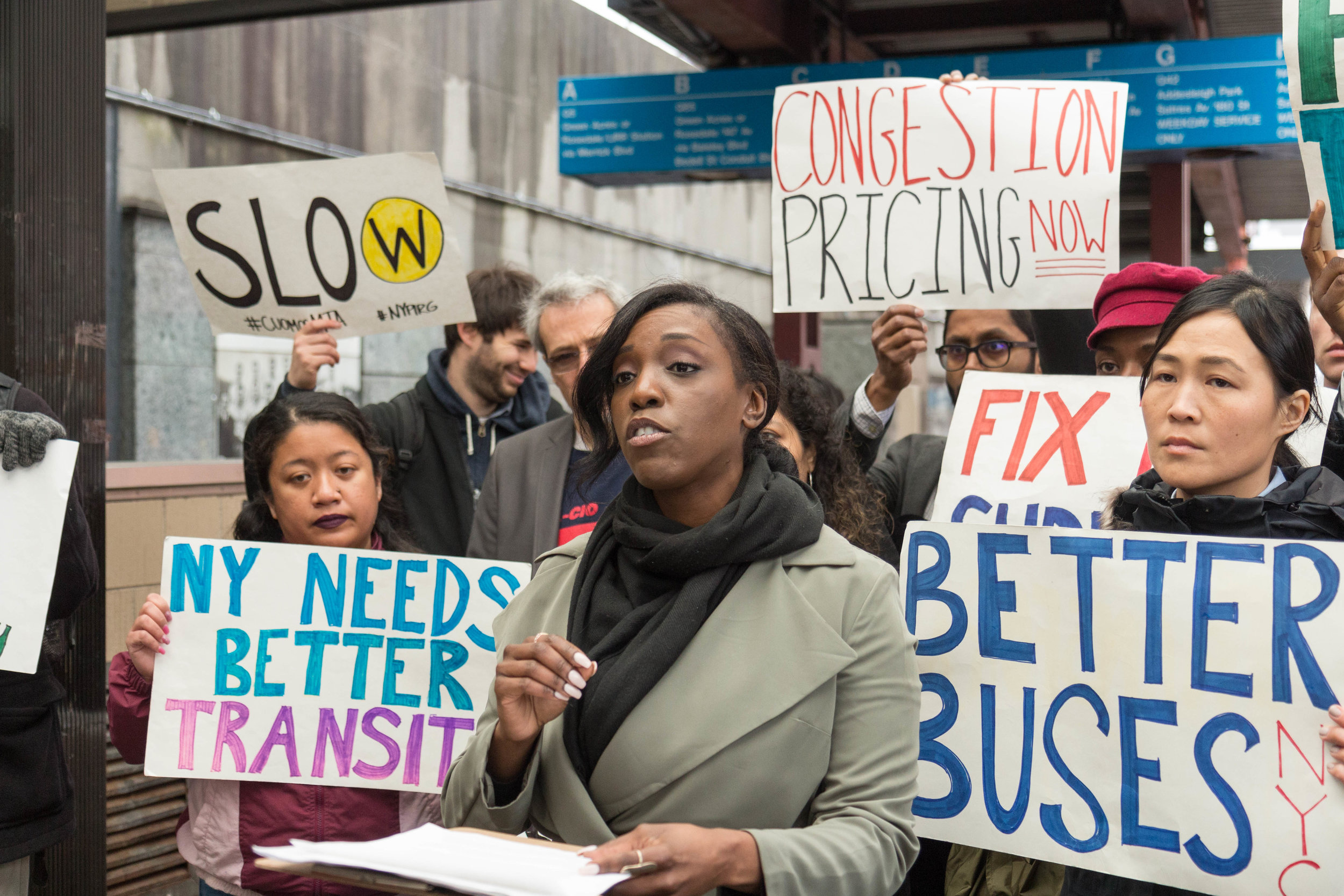In order to lower traffic and air pollution, New York City plans to approve congestion pricing by mid-June of this year. This system will impose higher fees on users of public goods for traveling through specific areas of the city.
Congestion pricing, which aims to cut the number of vehicles entering the toll area by 17 percent, will improve air quality, reduce carbon emissions, and provide much-needed funding for the public transit systems that New Yorkers depend on.
According to the Metropolitan Transportation Authority’s board, the congestion pricing plan would generate $15 billion, which would go towards helping the MTA in updating its public transit system with new trains, signals, and other improvements.
The toll zone for congestion pricing will affect Manhattan’s central district below 60th street. According to an article from NBC New York, charges will vary depending on the vehicle. Passenger vehicles would be charged $15, trucks between $24 and $36, and motorcycles would be charged $7.50. Taxis must pay a $1.25 surcharge per ride.
Uber, Lyft, and other rideshare drivers will be subject to the same policy, but with a $2.50 surcharge. Congestion pricing hours will vary based on the time of day. Motorists will be charged the full fee from 5 a.m. to 9 p.m. on weekdays. On weekends, those hours will shift to 9 a.m. to 9 p.m.
Outside of peak times, the toll will still apply, but it will likely cost approximately 75% less than the full price. There will be no fee imposed on drivers who leave or drive around the toll zone, as well as those who drive the FDR or West Side Highway without entering the street grid.
The MTA announced some exemptions for congestion pricing for private commuter buses, yellow school buses, as well as city-owned vehicles. Individuals with disabilities would also be eligible for the exemptions, which the MTA announced in two plans.
The latter will be able to apply for an exemption for a vehicle they are registered with under the Individual Disability Exemption Plan, and public and private organizations that transport people with disabilities would be able to register under the Organizational Disability Exemption Plan.
Congestion pricing would have several advantages for NYC students, according to Natasha Elder, regional director of equity and resiliency projects at the New York Public Interest Research Group (NYPIRG), a statewide student-led non-profit political organization.
“The full implementation of congestion pricing means transit service and infrastructure upgrades for students, ushering in a time where we can look forward to better transportation for all of us,” Elder said. “Congestion pricing is the only comprehensive solution that will decrease congestion in the Central Business District and raise funds to make service faster and more reliable for students across the city.”
NYC is facing numerous lawsuits from NYC residents, the state of New Jersey, and other parties which could delay the implementation of congestion pricing. New Jersey’s lawsuit against the U.S. Department of Transportation and the MTA claims that the plan is unconstitutional because it imposes a burden on interstate commerce, which would violate the U.S. Constitution’s dormant commerce clause.
Some lawsuits challenging the congestion pricing plan claim that it violates New York’s November 2021 Green Amendment (an environmental rights amendment approved to the NYS Constitution), which will result in increased air pollution levels across the state, potentially harming minority low-income communities like the Bronx, given that more drivers will divert around the toll zone.
To mitigate the effects of heavy traffic in toll-free areas of New York and reduce air pollution, the transit authority plans to invest millions of dollars in environmental justice initiatives such as installing air filtration units in schools, planting more trees, and electrifying vehicles.
Although critics have expressed concerns that congestion pricing is unfair to those with lower incomes, if the plan succeeds in reducing pollutants, transmissions, and stop-and-go traffic, it could serve as a model for other traffic gridlocked US cities to adopt in the near future.
Devra Baxter, Queens College NYPIRG project coordinator and environmental protection coordinator asserted that the implementation of congestion pricing is essential.
“It is a big win in NYC, and it isn’t just about reducing traffic — it’s about paving the way for a greener, more sustainable cityscape. By curbing congestion, we’re moving our city towards a cleaner, healthier future for all,” Baxter said.











